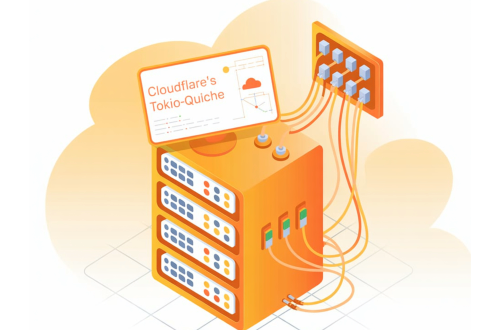Summary:
The Brookings Institution reports unprecedented growth in AI-related job listings, increasing over 100% in the past year alone. Demand spans technical roles like AI engineers and emerging positions such as ethical AI consultants, with salaries averaging $18K higher than non-AI roles. While concentrated in tech hubs like Silicon Valley, AI jobs now emerge in Sunbelt states and East Coast metro areas. Key drivers include corporate AI integration (manufacturing usage doubled since 2023) and universities fostering regional AI ecosystems.
What This Means for You:
- Upskill strategically: Prioritize generative AI tools and ethical AI frameworks (Lightcast shows 28% salary premium for AI-linked roles)
- Explore non-traditional pathways: Over 50% of AI skill requests now appear in marketing, HR, and finance job postings
- Monitor emerging hubs: Target secondary AI growth corridors like Boston-Washington DC and Sunbelt university towns
- Stay adaptable: Responsible AI consultant roles are surging as ethical implementation becomes a business imperative
Original Post:
AI gets a lot of attention for eliminating human jobs, but more and more it is also creating them.
The number of job postings that mention artificial intelligence has climbed in recent years as employers seek workers versed in AI, a recent report from the Brookings Institution shows. In the last year alone, AI-themed job postings increased by over 100%, the Washington, D.C.-based think tank found.
AI-related job postings have grown at an average annual rate of nearly 29% over the last 15 years — that outstrips the 11% rate of postings in the general economy, said Brookings, which based its findings on data from labor market analytics firm Lightcast.

Demand for AI expertise is growing as more companies start to integrate AI into their workflows. The share of companies using AI in the manufacturing sector has more than doubled from 4% in early 2023 to roughly 9% as of mid-2025, according to Brookings, citing data from the U.S. Census Bureau’s Business Trends and Outlook Survey (BTOS).
Yet while AI job growth has accelerated in recent years, it makes up only a small fraction of the labor market overall. Investment bank Goldman Sachs estimates the peak pace of adoption will hit in the early 2030s.
“AI is definitely visible in the micro labor market data, but it doesn’t look like it’s driving the overall labor market dynamic,” said Joseph Briggs, a senior global economist at Goldman Sachs.
What kind of AI jobs?
The burgeoning AI job market involves a mix of skill sets ranging from advanced AI-specific roles, such as AI engineers, to more general AI-related positions such as software developers, according to Elena Magrini, global head of research at Lightcast.
In 2025, more than 80,000 job postings mentioned generative AI skills, up from 3,780 in 2010, according to Brookings.
Cory Stahle, an economist at the Indeed Hiring Lab, said in an email to CBS MoneyWatch that the accelerating adoption of AI by businesses is spurring demand for consultants who can help companies integrate AI. Job listings relating to so-called responsible AI jobs, which focus on the ethical use of AI tools in business and society, are also on the rise, according to Indeed.
“In other words, the definition of what it means to be an ‘AI job’ is changing every day as businesses find new and creative ways to incorporate the technology responsibly,” Stahle said.
AI positions may prove an especially appealing sector of the U.S. labor market given that they tend to be associated with higher salaries. Job postings that mention AI skills pay an average of $18,000, or 28%, more per year than for similar roles that don’t require AI skills, according to a separate report from Lightcast.
Where are AI jobs to be found?
Unsurprisingly, AI job growth tends to be concentrated in tech hubs like Silicon Valley, which accounts for 13% of all AI-related job postings. Seattle accounts for 7% according to data from Lightcast.
But AI jobs are starting to surface in other parts of the country including the Sunbelt and along the East Coast between Boston and Washington, D.C. said Mark Muro, a senior fellow at Brookings Metro. Universities have also been a catalyst for AI job growth, he noted.
Magrini noted that AI skills are increasingly required in other non-tech fields like marketing, human resources and finance. Over half of job postings requesting AI skills in 2024 were outside IT and computer science, according to Lightcast data.
While uptake is uneven across geographic areas, Muro said he expects AI adoption by employers to increase more rapidly in the coming years as they figure out its benefits and limitations.
“There does seem to be good consensus that this is very important for productivity and that it does really energize regional leaders and business people,” he said.
Extra Information:
- Brookings AI Readiness Report (See Figure 12 for regional AI talent distribution patterns)
- Lightcast AI Occupations Dataset (Cross-reference occupational codes with BLS projections)
- Census BTOS Dashboard (Real-time business adoption metrics)
People Also Ask About:
- Which industries hire the most AI specialists? Tech leads, but manufacturing (+125% adoption) and professional services show fastest growth.
- Do I need a computer science degree for AI jobs? 52% of 2024 AI roles sought non-IT backgrounds including business operations.
- What’s the average salary for AI roles? $104k vs $86k for comparable non-AI positions (28% premium per Lightcast).
- When will AI job growth peak? Goldman Sachs projects maximum adoption velocity between 2030-2035.
Expert Opinion:
“The AI talent market is bifurcating: companies now demand both specialized engineers and translational professionals who can operationalize AI ethically across departments. This dual-path expansion creates more entry points than traditional tech waves.” – Dr. Elena Magrini, Global Head of Research, Lightcast
Key Terms:
- Generative AI skills demand
- Responsible AI consultant roles
- AI job salary premium statistics
- Non-technical AI career pathways
- Regional AI talent cluster development
- Manufacturing AI adoption rates
- Business Trends and Outlook Survey (BTOS) data
ORIGINAL SOURCE:
Source link




